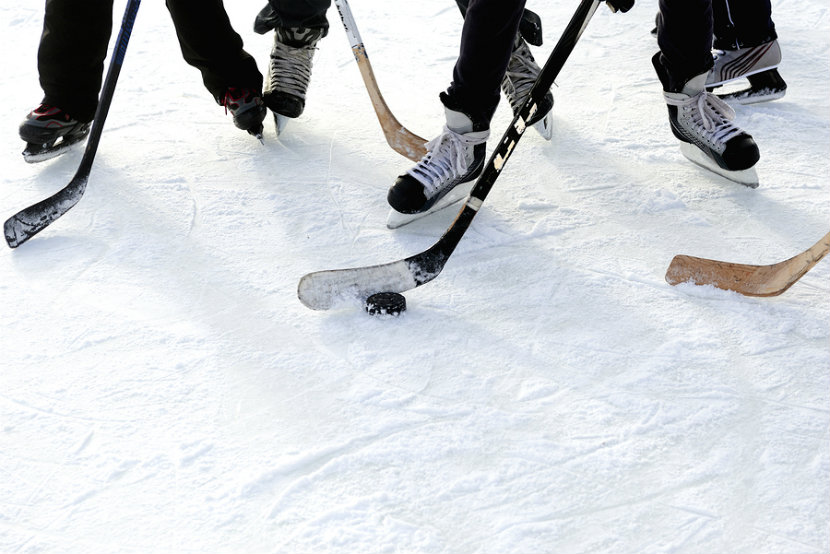
Vitamins and minerals play an important role in exercise and sport performance. Read on for more information about how iron, B vitamins, calcium, vitamin D and vitamins A, C and E help you to exercise and play sports at your best.
Why is iron important when you play sports?
Iron is a mineral that you need to carry oxygen throughout your body and to your muscles when you play sports. Without enough iron, you can become tired and your muscles may not work at their full potential.
Where can I get iron?
Iron is found in:
The iron found in animal products like meat, poultry and fish is absorbed best. Iron from plant sources is not as well absorbed, but foods rich in vitamin C like citrus fruit and juices, strawberries, bell peppers or broccoli help your body absorb the iron.
Do I need more iron if I play sports?
You may need more iron if you:
Low iron can be quite common, especially among women, adolescents and vegetarians who play high intensity sports. These groups should get iron levels checked regularly by their health care provider.
If your iron is low, you may need to take iron supplements. It is also important to eat iron-rich foods every day. Speak to your health care professional before taking iron supplements.
Read more about how much iron you need and how to ensure you are getting enough.
Why are B vitamins important when you play sports?
B vitamins include vitamin B1, vitamin B2, vitamin B3, vitamin B6, folate and vitamin B12. B vitamins help to:
-
Convert food into energy that you need to play sports
-
Make proteins to build and repair your muscles
-
Make red blood cells which give oxygen to your muscles
Where can I get B vitamins?
Following Canada’s Food Guide will provide you with all your B-vitamins. Try the foods below to get B vitamins:
-
Vegetables and fruits have folate. Try asparagus, beets, broccoli, Brussels sprouts, corn, green peas, romaine lettuce, cooked spinach, oranges, cooked edamame beans, avocado and papaya.
-
Grain Products have vitamin B1, B2, B3 and folate. Try enriched breads, cereals, pasta and wheat germ.
-
Protein foods have vitamin B2, B3, B6, B12 and folate. Try fish, lean meats, poultry, nuts, seeds, eggs, tofu, legumes, milk, cheese, yogurt and fortified plant-based beverages.
Are you at risk for low vitamin B12?
People who follow a vegetarian or vegan diet, and older adults over the age of 50 may be at risk for low vitamin B12.
If your health care provider tells you that you are low in vitamin B12, you may need to take a supplement. This can be in the form of a vitamin tablet or an injection into your muscle. Both forms of the B12 supplement can increase vitamin B12 levels in your blood.
Read more about vitamin B12.
Why is calcium and vitamin D important when you play sports?
Calcium is a nutrient that helps you build and maintain strong bones. When you don’t get enough calcium, your bones have a higher risk of becoming weak and are more likely to break.
Vitamin D is a nutrient that helps your body absorb calcium. Calcium and vitamin D work together to help you maintain healthy bones. Vitamin D also helps your muscles work properly.
Where can I get vitamin D?
You can find vitamin D in:
-
Cow’s milk
-
Fortified plant-based beverages
-
Fatty fish like salmon and sardines
-
Margarine
-
Egg yolks
-
Fortified yogurts (check the label)
Where can I get calcium?
You can find calcium in:
Find out more about calcium and vitamin D and how much you need.
Why are Vitamins A, C, and E important when you play sports?
Vitamins A, C, and E are “antioxidant” vitamins. Antioxidants help reduce muscle damage and speed up recovery after you play sports.
Where can I get vitamins A, C and E?
A well-balanced eating plan with a variety of plant foods will provide you with vitamins A, C and E.
-
The best sources of vitamin C are vegetables and fruit such as oranges, strawberries, bell peppers, tomatoes and broccoli.
-
Animal foods like milk, salmon and eggs are rich in vitamin A. Dark green and orange vegetables and fruit are rich in carotenoids which can be turned into vitamin A in our bodies.
-
Vitamin E is found in nuts, seeds, avocado, vegetable oils and wheat germ. Some dark leafy greens and fish are also sources of vitamin E.
How can a dietitian help?
A dietitian can review what you are currently eating and assess if you are low in any vitamins and minerals. They will give you suggestions on how to boost the nutritional content of your meals and snacks and let you know if you would benefit from a supplement. A dietitian can also give you personalized advice on when to eat and how much protein, carbohydrates and fat you need when training. Most employee health benefit plans cover dietitian services. Connect with a dietitian today!
Bottom line
If you play sports or exercise regularly, a balanced eating plan based on Canada’s Food Guide is important to help you get the vitamins and minerals you need and perform your best. Eat a variety of foods rich in iron, B vitamins, calcium, vitamin D and vitamins A, C and E. Speak to your dietitian or health care provider before taking a vitamin and/or mineral supplement.
You may also be interested in:
Sport nutrition: Facts on sports supplements
Sport nutrition: Facts on hydration
Sport nutrition: Facts on sports drinks
Sport nutrition: Facts on carbohydrate, fat and protein
This article was written and reviewed by dietitians from Dietitians of Canada. The advice in this article is intended as general information and should not replace advice given by your dietitian or healthcare provider.
Last Update – February 13, 2023